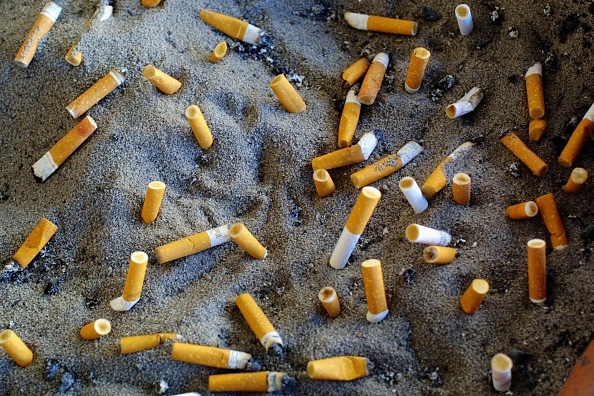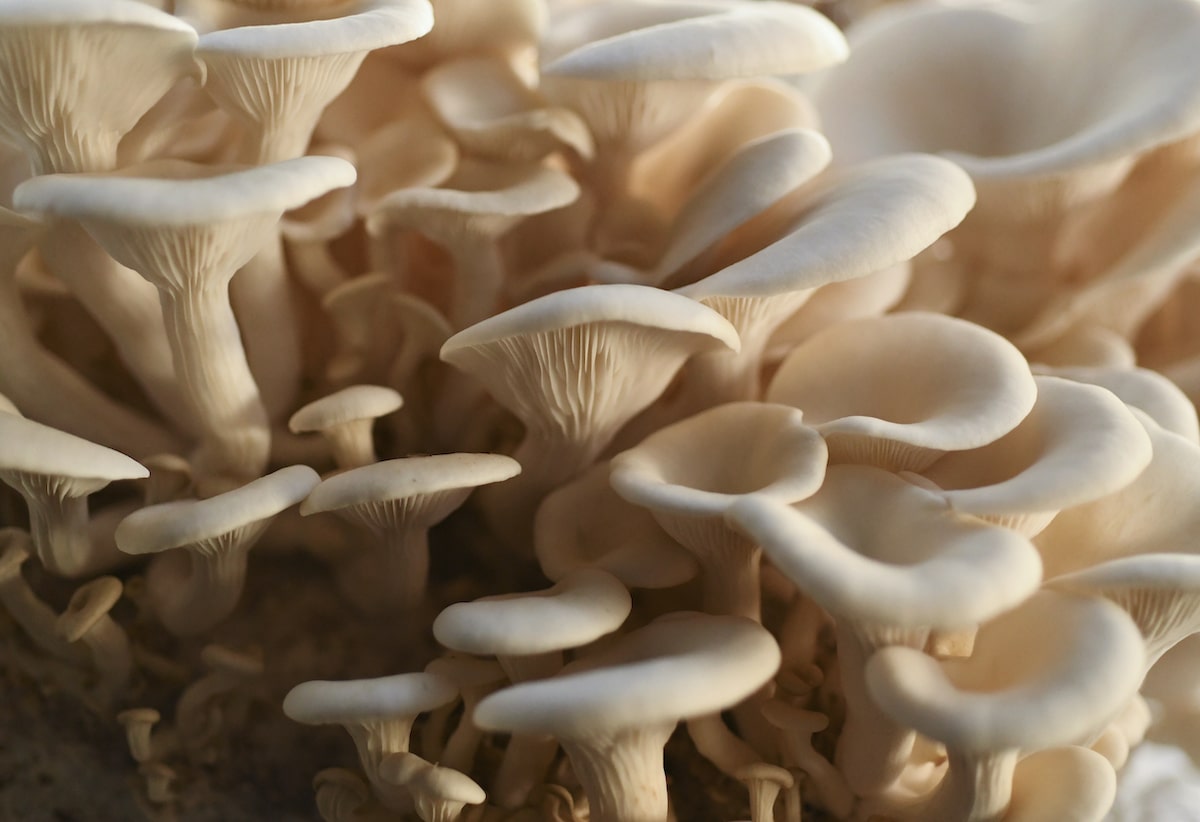Products You May Like
Researchers in Australia are training oyster mushrooms to consume cigarette butts. RJ Sangosti / The Denver Post
 Why you can trust us
Why you can trust us
Founded in 2005 as an Ohio-based environmental newspaper, EcoWatch is a digital platform dedicated to publishing quality, science-based content on environmental issues, causes, and solutions.
In a new program trial in Australia, oyster mushrooms are taking on an important new task. The fungi will consume the toxic chemicals and plastics inside up to 1.2 million cigarette butts, which will be diverted from landfills for the trial.
In Australia, people smoke about 18 billion cigarettes a year, and up to 9 billion cigarettes end up littered, according to the World Wildlife Fund Australia. Even with bans on smoking cigarettes in vulnerable areas, like beaches, much of the litter found still includes cigarette butts. In Victoria alone, an estimated 450 metric tons of cigarette butts go to landfills.
So in late 2020, researchers began looking for ways to repurpose littered cigarette butts. In 2021, researchers started working to train oyster mushrooms to break down cigarette butts, digesting the harmful materials like chemicals and microplastics and leaving behind materials that could be reused for other purposes.
More From EcoWatch
“It’s a fascinating process to see, and most of our stuff is grown in glass so you can see the process,” fungi researcher and founder of biotechnology company Fungi Solutions Amanda Morgan told Australian Broadcasting Corporation at the time. “Mushrooms put out fine webs of mycelium and the roots spread through the cigarette butt.”
Now, state government office Sustainability Victoria will fund a trial called CigCycle, a collaboration between nonprofit No More Butts and Fungi Solutions. The program will use cigarette butts destined for landfill, instead sending them to a lab to be digested by the oyster mushrooms.
The mushrooms use cellulose acetate in the cigarette butts as a source of nutrition, according to the researchers. The oyster mushrooms consume most of the provided cigarette butts within about a week, as The Guardian reported. In a landfill, this waste would take about 15 years to break down.

After the mushrooms break down the cigarette butts, researchers will determine if the remaining materials could be recycled into an alternative material for polystyrene. They anticipate using the recycled cigarette butt materials in construction and transportation.
“The final product is quite naturally quite lightweight and insulating,” Morgan said in a statement. “If it’s possible, we’d like to use the material to create vessels that we could then collect more cigarette butts in, rather than rubbish bins. That’s an example of something that would be a really nice, elegant circular solution for this material.”
The team hopes to draw attention to the widespread impact of cigarette butts on the environment.
“Even when people do the right thing and dispose of their cigarette butts the correct way, once they hit the waste stream and end up in landfill, they begin leaching damaging pollutants like arsenic and lead into waterways and soil systems. It takes about 15 years for plastic cigarette filters to break down,” Shannon Mead, founder of No More Butts, said in a statement.
With new funding from the government, the CigCycle program is now scaling up and recruiting businesses and venues to register to participate for free by depositing cigarette butts for the trial.
Subscribe to get exclusive updates in our daily newsletter!
By signing up, you agree to the Terms of Use and Privacy Policy & to receive electronic communications from EcoWatch Media Group, which may include marketing promotions, advertisements and sponsored content.
